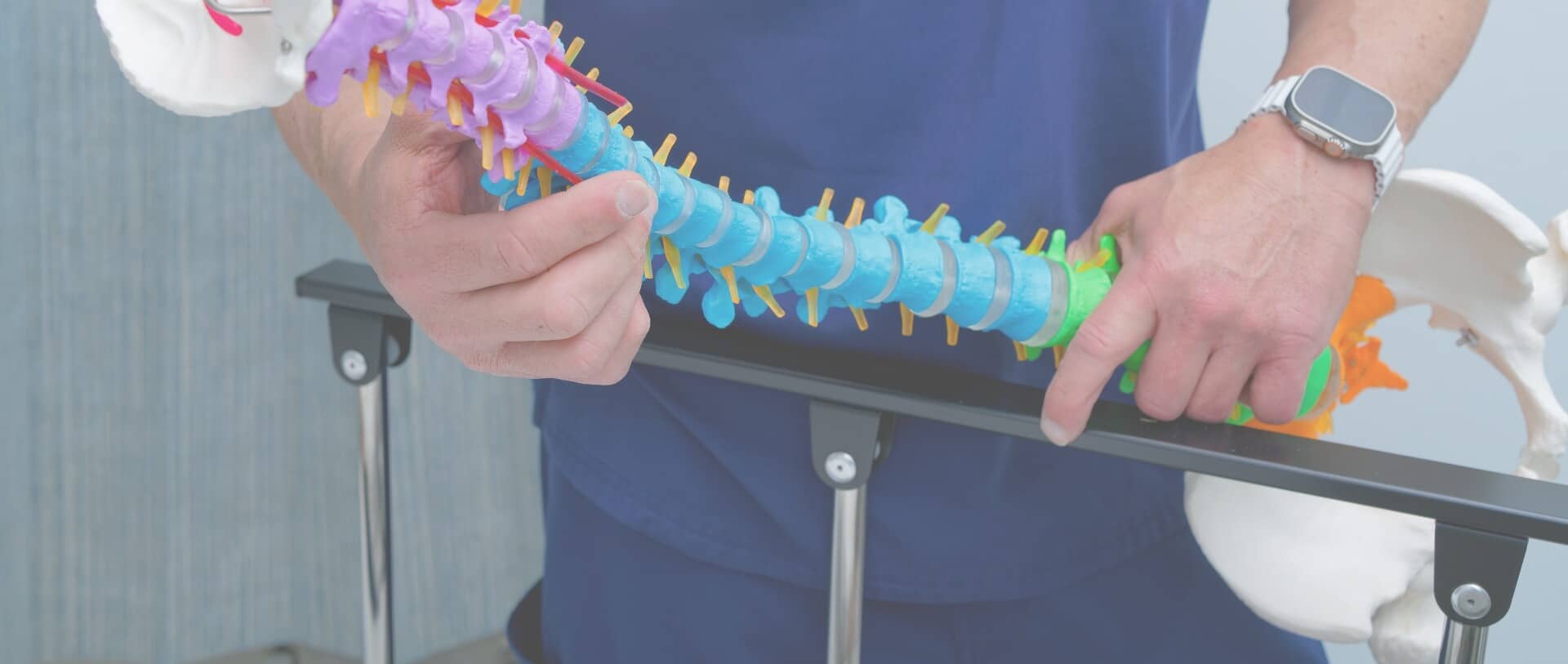
CONDITIONS
Sacroiliac Joint Dysfunction
Have you ever experienced a nagging discomfort in your lower back, hips, or buttocks that just won’t go away, no matter how much you stretch or rest? It might be more common than you think, and the culprit could be your sacroiliac joint. Nestled deep within your pelvis, this joint doesn’t always get the attention it deserves, but when it starts acting up, it can disrupt your daily life. Dr. Jamie Gottlieb and his team are here to help. Schedule an appointment today at our convenient location in Irving.
What is Sacroiliac Joint Dysfunction?
The sacroiliac joints, located at the base of your spine, serve as small connections between the pelvis and hips. These joints play a crucial role in shock absorption between the upper and lower body. If there are any problems with these joints, it can lead to sacroiliac joint dysfunction, leading to lower back pain and leg pain.
When there is either excessive movement (hypermobility) or limited movement (hypomobility) in the sacroiliac joints, it can result in pain, instability, or stiffness. Whether your issues stem from sports activities or your walking gait, Gottlieb Spine is here to help. We specialize in diagnosing and treating sacroiliac joint dysfunction, as well as other potential causes of lower back pain.
What are the Symptoms of Sacroiliac Joint Dysfunction?
The symptoms of sacroiliac joint dysfunction often mimic other conditions, making a consultation with an expert like Dr. Gottlieb essential. You may want to seek treatment for sacroiliac joint dysfunction if you experience any of the following, including:
- Lower back pain: The intensity can range from mild to severe and may present as sharp, stabbing, dull, or aching sensations. It can be felt on one or both sides.
- Radiating pain: Discomfort may spread from your back to the hip, buttocks, or groin. In some cases, it may extend down the leg, causing sciatica and knee pain.
- Stiffness: Limitations in hip and lower back flexibility may hinder activities associated with the onset of this condition.
- Instability: A sensation that your pelvis may give way while walking, standing, or sitting down may be experienced.
- Aggravated pain: Activities putting pressure on the sacroiliac joint, such as jogging, running, or climbing stairs, may exacerbate the pain. Additionally, movements like bending, twisting, or turning over in bed can intensify your discomfort.
- Muscle tenderness or tightness in the buttocks or hip area may also be present. Inflammation of the sacroiliac joint is referred to as sacroiliitis.
How is Sacroiliac Joint Dysfunction Treated?
Treatment for sacroiliac joint dysfunction typically starts with resting the joint for one to two days and applying ice or heat. Following rest, your doctor may prescribe other conservative treatment techniques, including:
- Over-the-counter pain medications
- If you’re dealing with severe pain, short-term prescription pain medication. Another option
- Corticosteroid injection to reduce inflammation and alleviate pain
- Physical therapy aids in restoring range of motion
- A waist brace can help maintain stability for individuals with loose ligaments
Will I Need Surgery For Sacroiliac Joint Dysfunction?
Surgery is typically considered a last resort for severe joint dysfunction when other treatments haven’t been effective. Sacroiliac joint fusion surgery is an option if your pain remains severe and debilitating.
During the procedure, the sacroiliac joint is fused to stabilize it and reduce pain. This may require the use of instrumentation like screws or rods, or a bone graft to promote healing. Dr. Gottlieb utilizes minimally invasive techniques to increase the success rate of the procedure, and its chances of pain reduction. Recovery times are also shorter when the latest techniques in spine surgery are used.

Top Quality Care at Gottlieb Spine
Sacroiliac joint dysfunction might not be a term you hear every day, but if you’ve been dealing with pain or discomfort in your lower back, hips, or buttocks, it’s essential not to overlook it. These seemingly small joints can have a big impact on your daily life when they start causing trouble. Dr. Jamie Gottlieb and our dedicated team are here to provide the expertise and care you need. Schedule an appointment with us today.
SCHEDULE A CONSULTATION